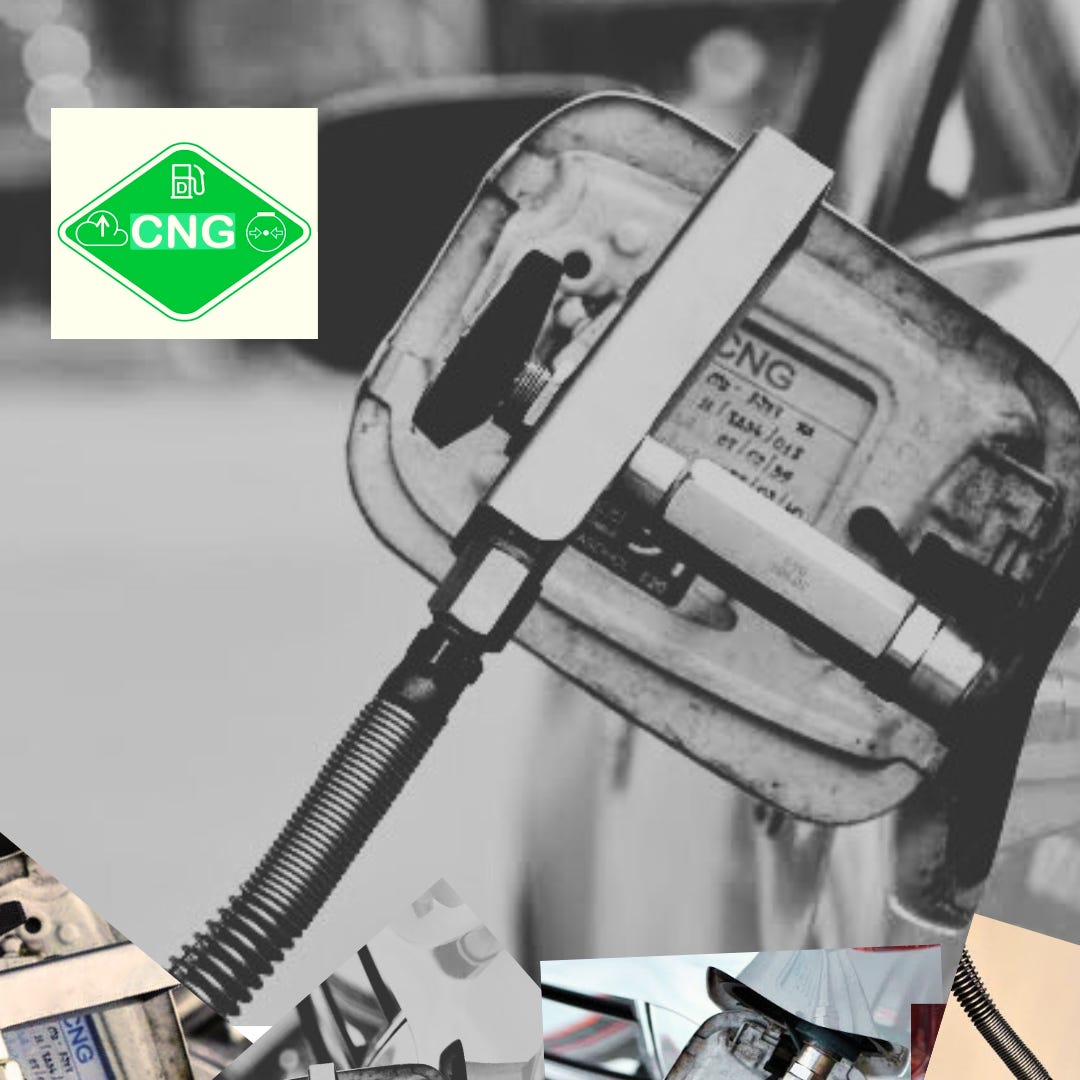Nigeria is set to be the CNG Capital of Africa
Why Nigeria's Federal Government CNG Initiative must work
What started as a political rhetoric is gradually taking shape and becoming a working reality. Almost 1year after PMS subsidy was removed by the Tinibu-led administration during his inaugural handover speech, Nigeria has had its fair share of energy crises but, it's finally looking like there is light at the end of the tunnel.
The Presidential CNG Initiative (PCNGI), supported with a cash injection of #100billion Naira ($69m) kicked off in October 2023 with knocked-off tariffs and tax for importation of CNG conversion kits, as well as components for the manufacturing of CNG (compressed natural gas) vehicles. Beyond this policy adjustment, Nigeria's Federal government directly procured CNG-powered vehicles and conversion kits with a promise to spur the development of more CNG filling stations. This initiative was welcomed with skepticism, but in recent times, it has become common knowledge that auto-manufacturing players like Inosson Motors, Jet Motors, NORD and even state governments like Ogun and Lagos states jumped on the CNG bandwagon. On the supply side, Nigeria's largest CNG advocate, NIPCO Gas, has ramped up its CNG production and distribution capacity with the introduction of more dispensing stations; other players are expected in this seemingly new energy turf.
The results?
CNG is set to become a viable cost-saving option for transporters, as the Nigerian Federal government plans to leverage the relatively lower cost of CNG (which boasts of 3X cost savings than PMS and up to 5X cost savings when compared with the current pump price of AGO) to subsidize passenger transportation from June 2024.
Does this mean CNG adoption is a silver bullet for Nigeria's energy crises? Hardly the case, however, CNG holds a firm promise if followed through with sincerity.
Over here we think beyond politics, Nigeria is in dire need of more energy options and we believe CNG provides a very viable route to properly addressing Nigeria's energy crises. To this effect, we coined 5 reasons Nigerians must embrace the CNG initiative:
CNG is a much cleaner fossil fuel
CNG burns almost without any smoke unlike petrol and diesel; on the other hand, the combustion of CNG doesn't produce poisonous gases like carbon monoxide and nitrogen oxides. With these characteristics, CNG is a cleaner and more environmentally friendly gas.
CNG availability and adoption will balance energy market forces
To put it simply, CNG can tame the wild demand for PMS and AGO in Nigeria. Currently and possibly for a little while longer, petrol (PMS) and diesel (AGO) both rule the roost for transportation and independent power generation (for individuals, small-to-mid-scale businesses and some Large-scale industries), however with a fully deregulated downstream oil sector in Nigeria, the government and sub-nationals can't just leave Nigerians fully at the mercy of market forces. The sudden devaluation of the Naira owing to the floating of the Naira should have at least taught us the dangers of going this route. Also, the very impressive BRT system in Lagos provides a practical case study of how strategic government subsidies and investments can help achieve a measure of price control even in an open market. The government needs to have a practical and tactical measure to axe the very natural greed that comes with capitalism. With CNG, the government of Nigeria may just have found a proverbial magic wand! The question now is; how seriously will the CNG initiative be sustained and improved upon?
CNG in automotive and power generation applications will raise safety and proper maintenance consciousness
Very naturally, regulatory standards must be improved on and adapted to align with the current practical conformity of end-users to upholding safety and maintenance guidelines. This is super pertinent in meeting up with the reality of checkmating hazards associated with the mass adoption of CNG especially for a poorly regulated market as Nigeria. More intensified regulatory activities should improve the maintenance culture of end users over time; however the aforementioned has to be religiously sustained for end users of CNG to conform. Factually speaking, without a deliberate positive maintenance culture change, the mass adoption of CNG by Nigerians is more of a hazard than a solution.
Expansion of the CNG value chain holds a massive job creation promise
Starting from the local production of more CNG to meet increased demand for this energy source, to the much-needed regulation and distribution of CNG products nationwide, the possibilities are huge. The presidential CNG initiative alone has added to the number of locally manufactured vehicles and this can be further replicated resulting in more jobs overall. Other ancillary will naturally come into play if this initiative is well sustained and can rightly place Nigeria as the CNG capital of Africa.
With Nigeria taking the lead first in West Africa, CNG could be an easy export product that will buffer the Naira
Just as crude oil is a major export product, CNG can further expand Nigeria's foreign earnings leveraging Nigeria's huge natural gas reserves. The interesting twist here is how Nigeria can be positioned to increase the demand for CNG (via CNG-powered vehicles export) in Africa and at the same time supply the CNG product. All the cards seem to align for Nigeria, but will she play? Now that's the question! Talking about an African prospect for Nigeria spearheading CNG, who are the current key players and competition? Only Egypt, Libya and Angola come even close, Nigeria is Africa's largest gas exporter with hugely untapped potential still.
Lastly….
The conversation goes beyond Africa, but looking inward holds a better promise in strengthening the fabrics of intra-African trade between African countries with Nigeria leading the pack. This is the time Nigerians need to look beyond party, religious or ethnic lines so as not to miss this great opportunity regardless of how it is spearheaded as long as it's moving in the right direction.




